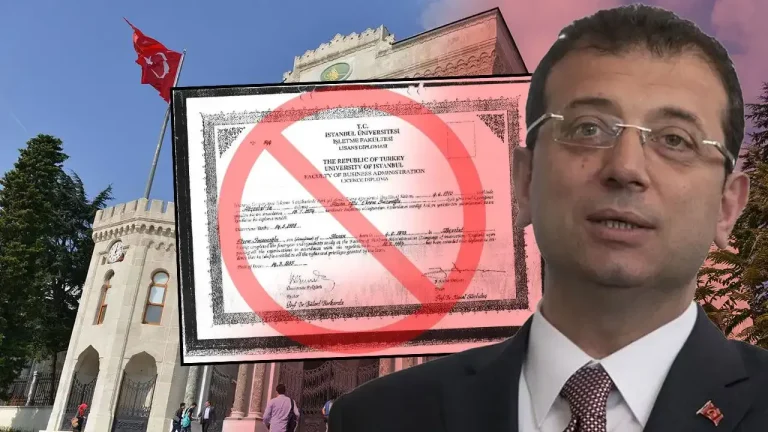Italy Issues “Red” Alert for Many Cities Due to Extreme Heat
21 Cities to Experience Scorching Temperatures
Due to the extreme heat expected to impact Italy over the weekend, a “red” alert has been issued for 17 cities on Saturday and 21 cities on Sunday.

Heat Wave in Italy: Red Alerts Issued for Multiple Cities
The Ministry of Health in Italy has issued a warning on social media, indicating that a heatwave will affect many cities over the weekend. Along with the alert, the Ministry provided a series of recommendations and precautions for protection from the sun.
Red Alert for 21 Cities
According to the Ministry’s announcement, on Saturday, a “red” alert has been issued for Ancona, Bologna, Bolzano, Brescia, Florence, Frosinone, Latina, Milan, Naples, Palermo, Perugia, Pescara, Rome, Turin, Trieste, Venice, and Verona. On Sunday, the cities of Catania, Civitavecchia, Rieti, and Viterbo will also be added to the red alert list, bringing the total number of affected cities to 21.
Health Risks of Extreme Heat
The Ministry of Health emphasized that the extreme temperatures not only pose a risk for the elderly, children, and individuals with chronic illnesses, but can also have serious health implications for healthy and active individuals. Extreme heat can lead to dehydration, heart attacks, strokes, and kidney failure. Additionally, high temperatures can cause heat-related illnesses such as heat exhaustion and heat stroke, which can be life-threatening if not addressed immediately.

Precautions and Safety Tips
The Ministry of Health provided several recommendations for the public to mitigate the effects of the extreme heat:
- Hydration: It is essential to drink plenty of water throughout the day. Authorities recommend a minimum of 2-3 liters of water per day, especially for those spending time outdoors.
- Staying Cool: Avoid being outside during the hottest hours of the day, typically between 11:00 AM and 5:00 PM. Stay in cool, shaded areas whenever possible.
- Protecting Your Skin: Wear light, loose-fitting clothing, a wide-brimmed hat, and sunscreen to protect your skin from direct sun exposure. Sunglasses are also recommended to protect your eyes.
- Limiting Physical Activity: Reduce physical activity, especially outdoors, during the hottest parts of the day to avoid overheating.
Health Risks for Vulnerable Groups
The Ministry has particularly stressed the dangers that extreme heat poses to vulnerable groups, such as the elderly, children, and those with chronic health conditions. These individuals are at a higher risk for heat-related illnesses, and health experts strongly recommend that they stay indoors, drink plenty of water, and avoid direct sun exposure during the heatwave. The extreme temperatures may exacerbate conditions like heart disease, respiratory issues, and diabetes, making it especially important for these groups to take additional precautions.
The extreme heat in Italy presents a significant public health threat and is impacting daily life in many regions. Authorities are urging citizens to take necessary precautions to protect themselves from the heat. Simple measures, such as staying hydrated and avoiding excessive sun exposure, are key to maintaining health during these difficult summer conditions.
Additionally, the impact of extreme heat is not only limited to health concerns. The rising temperatures also have a significant effect on infrastructure, particularly energy consumption. As people rely more on air conditioning and fans to stay cool, the demand for electricity increases, which can put a strain on the power grid. In some regions, this has led to power outages and disruptions, further complicating the situation.
Moreover, the intense heat creates conditions that are conducive to wildfires, particularly in rural and forested areas where vegetation is dry. Authorities have issued warnings to stay away from forests and fields, as the risk of fire is heightened. Firefighters across the country are on high alert, prepared to respond to emergency situations. These fires can not only cause environmental damage but can also endanger lives and disrupt local economies, particularly in agriculture.
Farmers are also particularly concerned about the heatwave’s impact on crops. Prolonged periods of extreme heat can damage crops such as fruits and vegetables, which rely on consistent and moderate temperatures for optimal growth. This may lead to reduced yields and increase the prices of certain food items, affecting both local markets and international trade. The agricultural sector, in particular, is urging the government to provide assistance to mitigate the effects of the heatwave.
With climate change driving more frequent and severe heatwaves, experts warn that Italy may face more of these extreme weather events in the coming years. As temperatures continue to rise, it becomes increasingly important for both individuals and governments to prepare for these challenges. Authorities have called for more proactive measures to address the long-term impacts of heatwaves, such as improving urban planning to create cooler environments and ensuring that vulnerable communities are adequately supported during extreme weather events.
In conclusion, while Italy grapples with the current heatwave, the broader implications of climate change and its effect on health, infrastructure, agriculture, and the economy must be considered. The extreme temperatures serve as a reminder of the urgent need for climate action and the importance of adaptation strategies in facing future heatwaves.





